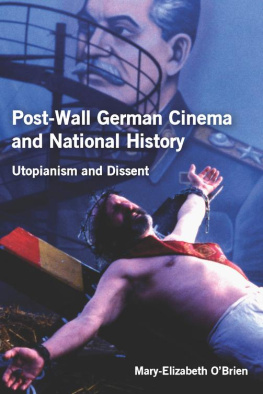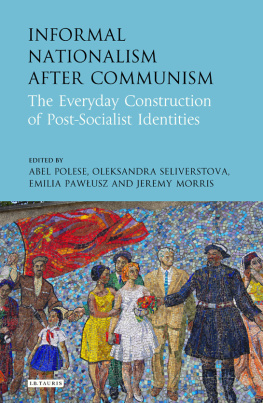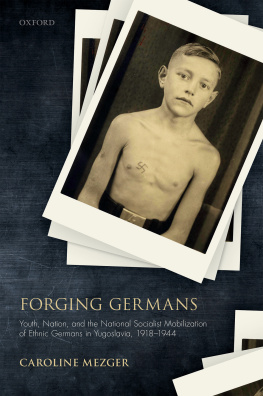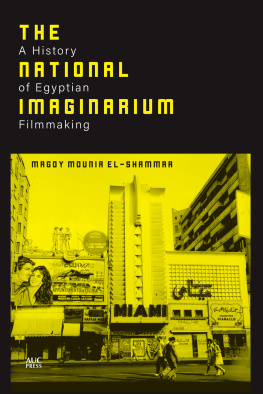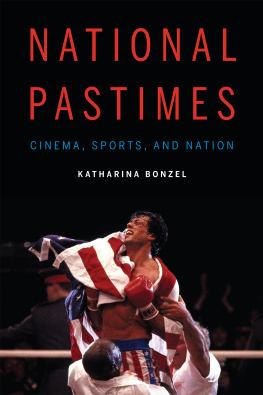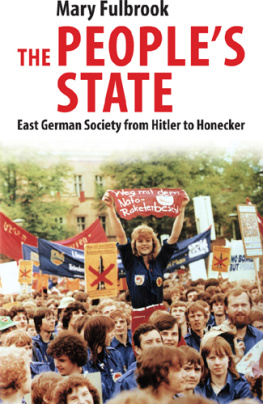Since unification, a radical shift has taken place in Germans view of their countrys immediate past, with 1989 replacing 1945 as the primary caesura. The cold-war division, the failed socialist state, the 68 student movement, and the Red Army Faction historical flashpoints involving political oppression, civil disobedience, and the longing for utopian solutions to social injustice have come to be seen as decisive moments in a collective history that unites East and West even as it divides them. Telling stories about a shared past, establishing foundational myths, and finding commonalities of experience are pivotal steps in the construction of national identity. Such nation-building is always incomplete, but the cinema provides an important forum in which notions of German history and national identity can be consumed, negotiated, and contested. This book looks at history films made since 1989, exploring how utopianism and political dissent have shaped German identity. It studies the genre - including popular successes, critical successes, and perceived failures - as a set of texts and a discursive network, gauging which conventions and storylines are resilient. At issue is the overriding question: to what extent do these films contribute to a narrative that legitimizes the German nation-state?
16 powerfully expressive screenshots awake interest, a detailed indexmakes locating things easy, the copious notes free up the discourse, which offers a convincing analysis of the corpus of the history film genre. Looking back at the Wende, the trauma of the Wall, and the Red Army Faction, the films appear as seismographs of the time. The recalling of then-topical conflicts opens broad perspectives. GERMANISTIK.
Studies in German Literature, Linguistics, and Culture
For my husband, Joseph Chautard
Contents
M ANY INDIVIDUALS AND ORGANIZATIONS have helped me to complete this book. I owe a substantial debt of gratitude to Stephen Brockmann and Shirley Smith for reading the entire manuscript and providing insightful comments that allowed me to refine my arguments at crucial stages in the writing process. I would like to thank the two anonymous readers for their exacting criticism that proved indispensible in making revisions. Laura McGee spent countless hours with me watching movies, attending podium discussions, and debating issues in contemporary German cinema, for which I am deeply grateful. Ruth Cape and Karin Hamm-Ehsani discussed important issues at length, offered valuable suggestions, and encouraged me when I needed it the most. I have profited greatly from conference panels where I could debate my ideas, and I would especially like to thank John Blair, Muriel Cormican, Owen Evans, Rick McCormick, Gabriele Mueller, and James Skidmore for their input. Thanks are due to my students who have shared my passion for German cinema and allowed me to experiment with new ideas in the classroom. Research on this book would not have been possible without access to the library at the Hochschule fr Film und Fernsehen Konrad Wolf. I am indebted to the librarians, director Lydia Wiehring von Wendrin, and Kirsten Otto, who provided expert advice, found numerous articles and important references for me, helped locate photographs, and welcomed me with a smile and assistance throughout my sabbatical and frequent research trips. Renate Gthe provided guidance and innumerable newspaper articles. Ulrike Rollnik and Susanne Reiser tirelessly furnished a steady stream of DVDs. I would like to thank Dieter Jaeger for giving me permission to publish the beautiful photograph for the books cover. For their help in obtaining photographs, I am grateful to Peter Latta at the Filmmuseum Berlin-Deutsche Kinemathek, Hiltrud Schulz at the DEFA Film Library, and Manja Meister at DEFA Spektrum. Working again with Camden House has been a pleasure. I am grateful to editorial director Jim Walker for his openness to this topic and helpful suggestions. Managing editor Ryan Peterson, production editor Jane Best, and copyeditor Sue Innes provided meticulous copyediting and careful preparation of the manuscript. Skidmore College offered funding and a yearlong sabbatical leave, which allowed me uninterrupted periods of time for research and writing. I am grateful to Dean of the Faculty Muriel Posten, Dean of the Faculty Beau Breslin, Vice President for Academic Affairs Susan Kress, and Associate Dean Paty Rubio for their steadfast support. I would like to thank Courtney Ross for her generous sponsorship of my research via the Courtney and Steven Ross Chair in Interdisciplinary Studies. Finally, I would like to thank my husband, Joseph Chautard, because without his constant support, encouragement, and occasional gentle nudge, this book would never have come to fruition.
As the people of the centre in every sense of the term, the Germans are more intangible, more ample, more contradictory, more unknown, more incalculable, more surprising, and even more terrifying than other peoples are to themselves: they escape definition, and are thereby alone the despair of the French. It is characteristic of the Germans that the question: What is German? never dies out among them.
Friedrich Nietzsche, Beyond Good and Evil
O N 3 O CTOBER 1990 THE C OLD W AR officially ended on German soil. With the demise of the German Democratic Republic and the emergence of a unified state in the form of the Federal Republic of Germany, not only the Cold War but in some ways also the Second World War faded into history. The fall of the Berlin Wall and unification allowed the postwar era to take on the contours of a completed historical period that occupies the immediate past and provides an epochal buffer zone between the present and the Third Reich. The year 1989/90 marked a profound shift in international relations and allowed the postwar era to supersede the Third Reich as the defining moment in recent German history. The signing of the 4+2 treaty implied that the international community had formally pardoned Germany and, to more cynical minds, had lifted its sentence of postwar division as retribution for the atrocities committed under National Socialism. International approval of plans for unification implicitly paved the way for a redefinition of Germany as a reasonably contrite former combatant and morally acceptable modern state. But how can a divided country whose common jingoist, genocidal past has rendered nationalism deeply suspect begin to conceive of itself as a viable and future-oriented unified nation?
Divided Germany, more than any other country, marked the battle lines between the competing superpowers. In official rhetoric, the FRG imagined itself as a prosperous, peace-loving democracy repelling the Bolshevist threat and pitted against the rival GDR, which in turn saw itself as the showcase of the socialist planned economy and the bulwark against capitalisms fascist legacy. Little of the GDRs political and social institutions, artistic heritage, everyday culture, and value systems, or even material goods and architecture survived the unification process, which some critics have labeled an annexation. The refurbishing of the Reichstag with a reflective glass dome signifying a more thoughtful, open political process, coupled with the transformation of no-mans-land surrounding Potsdamer Platz into the shimmering steel and glass facade of a shopping arcade and entertainment center, exemplify in concrete terms several of the most persistent, if contested, aspects of the Berlin Republics self-image: democratic political representation, a free market economy, the promise of prosperity and amusement, and a balance between preserving memory and living in the present.
The term Vergangenheitsbewltigung, originally referring to the psychological work of a nation coming to terms with its immediate past of a horrific, nearly incomprehensible fascist dictatorship, has taken on new meaning in the Berlin Republic. With the collapse of the GDR, a radical shift has taken place in what constitutes the immediate past. 1989 has replaced 1945 as designating the primary caesura of recent German history. This shift reflects what Hayden White has described as the essential mechanism by which we distinguish historical epochs, namely a shift in moral regimes. As long as the GDR existed, Germans in both the East and the West could take solace in the notion that there was at least an attempt to bring about a utopian vision of Germany as an alternative to individualistic, alienating, and consumer-driven capitalism. And despite the reality of a generally conservative unified Germany (governed for all but seven years by the Christian Democratic Union), this dream of a socialist alternative continues to be a strong undercurrent in the Berlin Republic. Comments made by acclaimed West German poet and essayist Hans Magnus Enzensberger are emblematic of this stance. In a 2008 interview with

